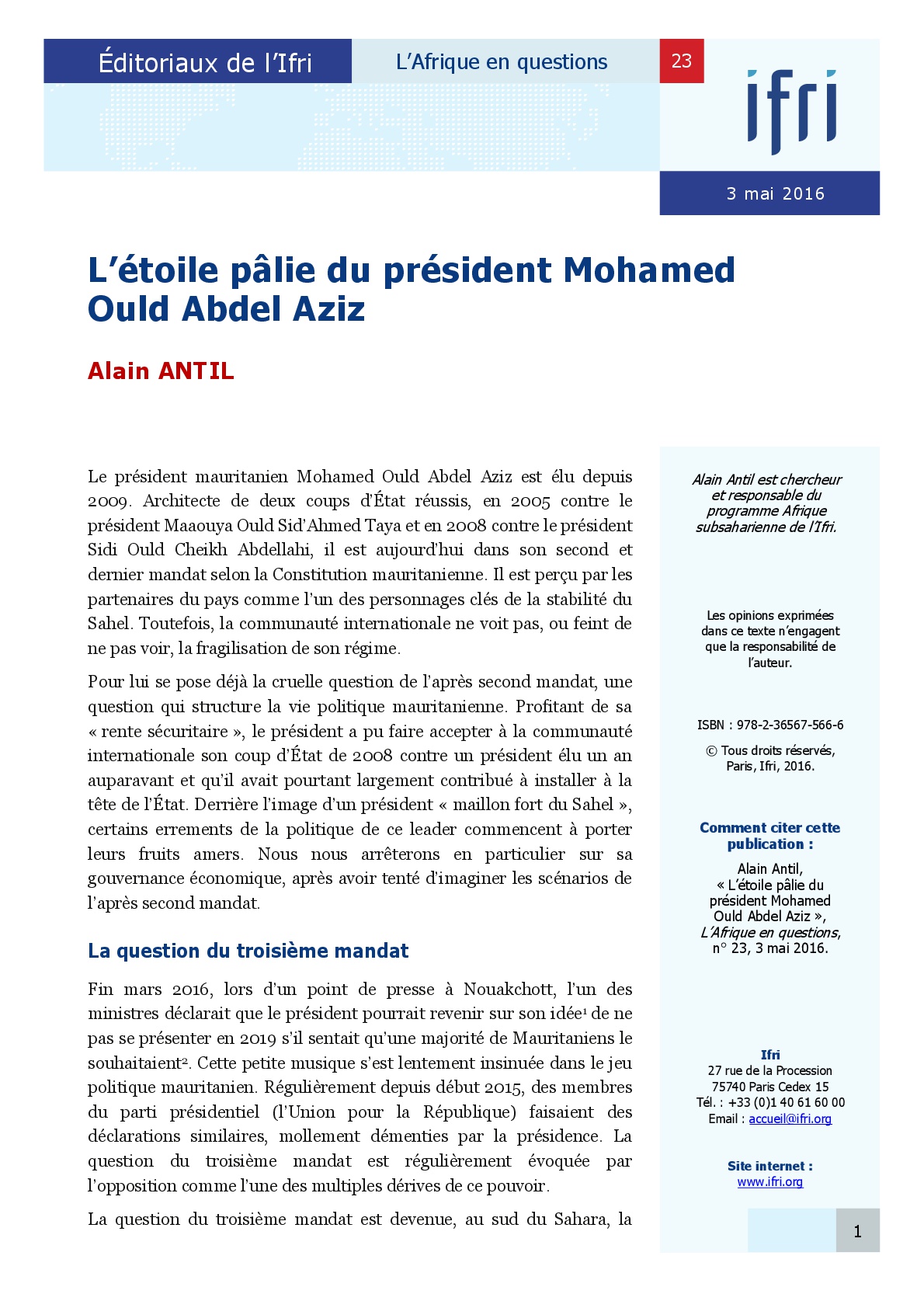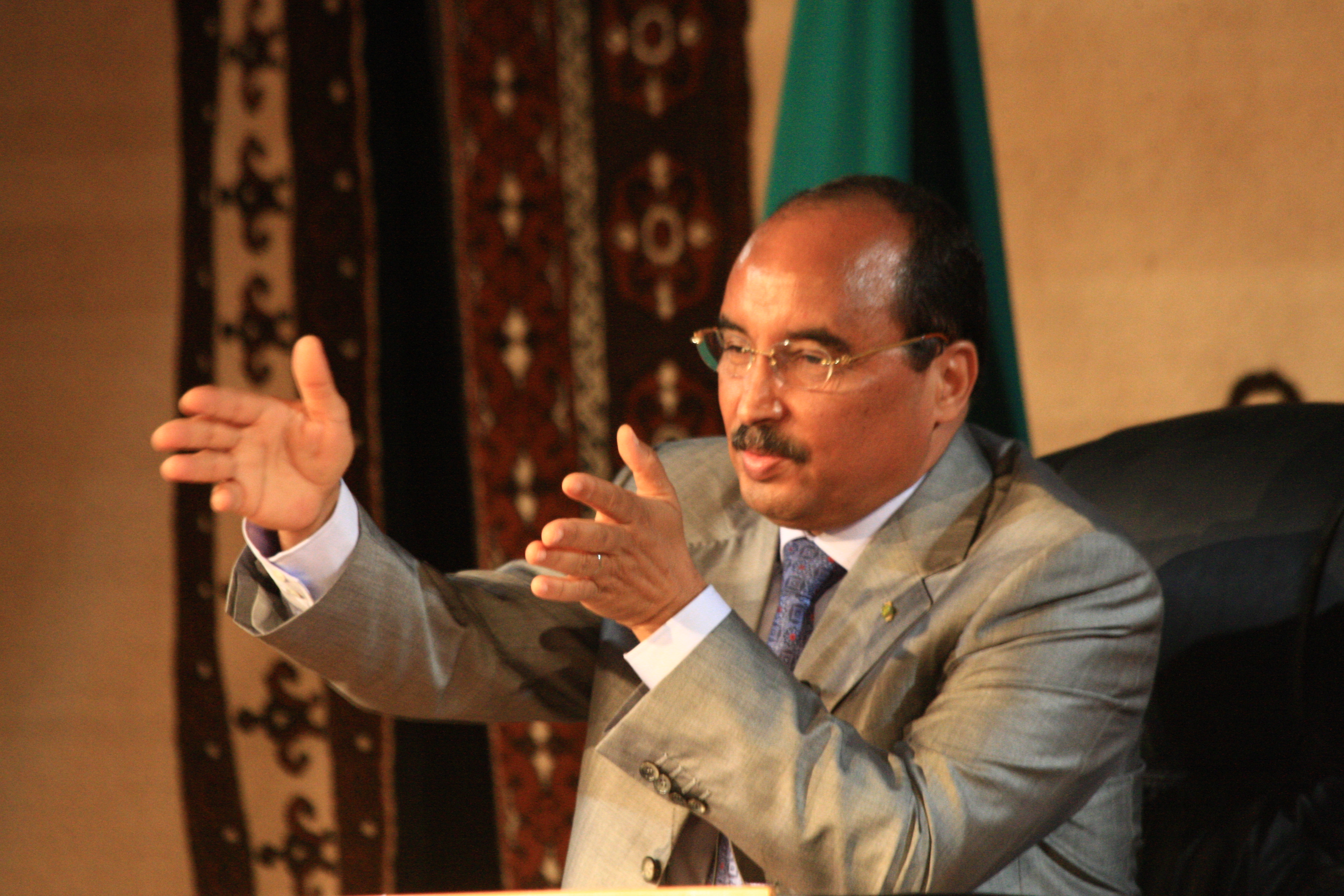The faded star of President Mohamed Ould Abdel Aziz

The Mauritanian President, Mohamed Ould Abdel Aziz, was elected in 2009. The architect of two successful coups: in 2005 against President Maaouya Ould Sid’Ahmed Taya, and in 2008 against President Sidi Ould Cheikh Abdellahi, nowadays he is in his second and last term of office according to the Mauritanian constitution. He is viewed by the country's partners as one of the key figures in the stability of the Sahel. However, the international community does not see, or pretends not to see, the weakening of his regime.

The harsh question of a post-second term of office arises for him; an issue which is shaping Mauritanian political life. Capitalising on his "security success", the president has been able to make the international community accept his coup in 2008 against a president elected a year earlier and who he was however largely instrumental in installing as head of state. Behind the image of a president who is the "strong link in the Sahel", some governance mistakes are starting to bear bitter fruit. We will concentrate on his economic governance in particular, after having tried to envisage post-second term scenarios.
Download the full analysis
This page contains only a summary of our work. If you would like to have access to all the information from our research on the subject, you can download the full version in PDF format.
The faded star of President Mohamed Ould Abdel Aziz
Related centers and programs
Discover our other research centers and programsFind out more
Discover all our analysesThe Contradictory Impacts of Western Sanctions on Economic Relations between Russia and Sub-Saharan Africa
How does Russia maintain economic ties with Africa despite Western sanctions? An analysis of investments, trade, and the circumvention strategies deployed by Moscow.
The Revenue Sources Sustaining Sudan’s Civil War. Lessons for the year 2023
Wars require money and resources, and often, most conflicts involve controlling sources of income and supply lines or denying them to enemies. This has been the case in Sudan’s past conflicts and is again as the civil war—between the Sudan Armed Forces (SAF), commanded by General Abdelfattah al-Burhan, and the paramilitary Rapid Support Forces (RSF), commanded by General Mohammed Hamdan Daglo “Hemedti” —has sunk into a protracted conflict.
Anglo-Kenyan Relations (1920-2024) : Conflict, Alliance and a Redemptive Arc
This article provides an evidentiary basis for postcolonial policy in its analysis of Anglo-Kenyan relations in a decolonization era.
When City Diplomacy Meets Geopolitics: A Framework to Help Cities Navigate Geopolitical Risk
Crises and the increasing polarization of international relations make political risk analysis an indispensable resource for internationally active public and private entities.












